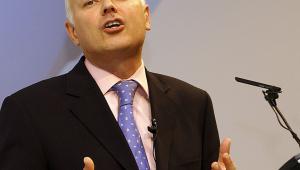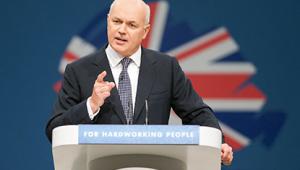Today’s speech on welfare reform from the new Welfare and Pensions Secretary, Ian Duncan Smith, was noteworthy for three reasons. First, it was an impassioned speech full of outrage about the extent of poverty and inequality in the UK. It lacked the usual clichés of ministerial speeches on welfare (from both Labour and the Conservatives) about getting tough on benefit cheats and cracking down on the ‘can work / won’t work’ cohort. Instead, this felt like a genuine attempt to get to grips with the scale of poverty and think seriously about how to address it.
Second, Duncan Smith’s plans stand out because, in a week dominated by news of spending cuts, they make very little reference to specific cuts in the welfare budget. Of course, Duncan Smith recognised the need for his department to play its part in reducing the deficit, but this was not a speech about efficiency savings, scaling back programmes or tightening belts. It was an optimistic speech, full of ideas and recognising that the Department for Work and Pensions must continue to protect the most vulnerable whatever the public finances may look like.
In fact Duncan Smith’s plans for improving work incentives could be costly, and although he claims savings will be made in future, there may still be a need for extra resources. There is nothing wrong in principle with improving work incentives but Duncan Smith’s test of protecting the least well-off will be stretched to breaking point if this involves taking money from the out-of-work benefits bill to pay for increased spending on people already in work. But with the public finances as they are, it’s difficult to see where else extra money can be found.
The issue of work incentives and benefit reform brings us to the third and final standout element of today’s announcements. Despite its many strong points, Duncan Smith’s speech was striking in the way that it made no reference to the other half of the jobs equation: the availability of jobs. In focusing so exclusively on benefit and welfare reform, Duncan Smith failed to mention that soaring unemployment is the result of recession; that in many parts of the country, the jobs just aren’t there; and that if they are, they are too often low-paid, low-skilled, short-term and fairly unrewarding. In other words, there was no mention of the realities facing many jobseekers, no matter how motivated, well-skilled or financially incentivised.
Duncan Smith places too much faith in welfare to work and benefit reform, and he is not alone – the previous government was often just as guilty of this. By continuing much of what Labour was doing before the recession, the Coalition government welfare plans are actually less radical than they may look. The really radical thing that the previous government did was to start thinking about creating job opportunities in places where they are needed, using the Future Jobs Fund. But this programme has now been cancelled by the Coalition government, and we’re back to a fixation with benefit reform and welfare to work. There was much to be admired in Ian Duncan Smith’s first speech as Welfare Secretary but if the Coalition government doesn’t recognise that the labour market matters too, its welfare reforms will only get it so far in its goal of tackling poverty and worklessness.
Kayte Lawton is a Research Fellow at the Institute for Public Policy Research











